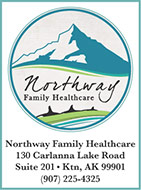
New Water Samples Find Elevated Bacteria Levels at Four Coastal Areas in Ketchikan
August 26, 2017
Since July 18, the Alaska Department of Environmental Conservation has been collecting water quality samples at nine coastal areas, including: South Refuge Cove Beach, Seaport Beach, Rotary Park Beach (Bugges Beach), Thomas Basin, Beacon Hill, Knudson Cove, South Point Higgins Beach, Sunset Beach, and Shull Beach. The samples collected at the following locations on August 22nd and 23rd exceed water quality criteria:
The advisorie for the affected beaches will remain in effect until bacteria levels for all beaches are within acceptable levels. The five areas as of this date with acceptable water quality samples are: South Refuge Cove Beach, Beacon Hill, South Point Higgins Beach, Sunset Beach, and Shull Beach. Be sure to keep up with the latest weekly water sample public updates. Contact with water impacted by fecal bacteria may cause stomach aches, diarrhea, or ear, eye, and skin infections. The beach sampling program uses enterococci as an indicator for fecal bacteria in marine waters. Continued precautionary measures are advised. The Alaska Department of Environmental Conservation recommends beach users avoid exposure, such as avoiding swimming in the water, washing after contact with the water, and rinsing fish with clean water after they have been harvested from the area. As always, people should cook seafood to a minimum internal temperature of 145 degrees Fahrenheit to destroy pathogens. Enterococci bacteria can come from any warm blooded animal, including birds, seals, and dogs, as well as humans. Potential sources of this bacteria in Ketchikan may include wildlife and pet feces, human waste from private or municipal treatment systems, sewer line leakage, and/or boats in harbor areas. Additional DNA marker testing is being conducted to help determine the bacteria source(s). Results of this testing are anticipated in mid-September. The beach sampling program is being implemented by Alaska DEC. It is part of a nationwide effort to decrease the incidence of water-borne illness at public beaches under the federal Beaches Environmental Assessment and Coastal Health (BEACH) Act, funded by an EPA BEACH grant.
On the Web:
Editing by Mary Kauffman, SitNews
Source of News:
Representations of fact and opinions in comments posted are solely those of the individual posters and do not represent the opinions of Sitnews.
|
|||

